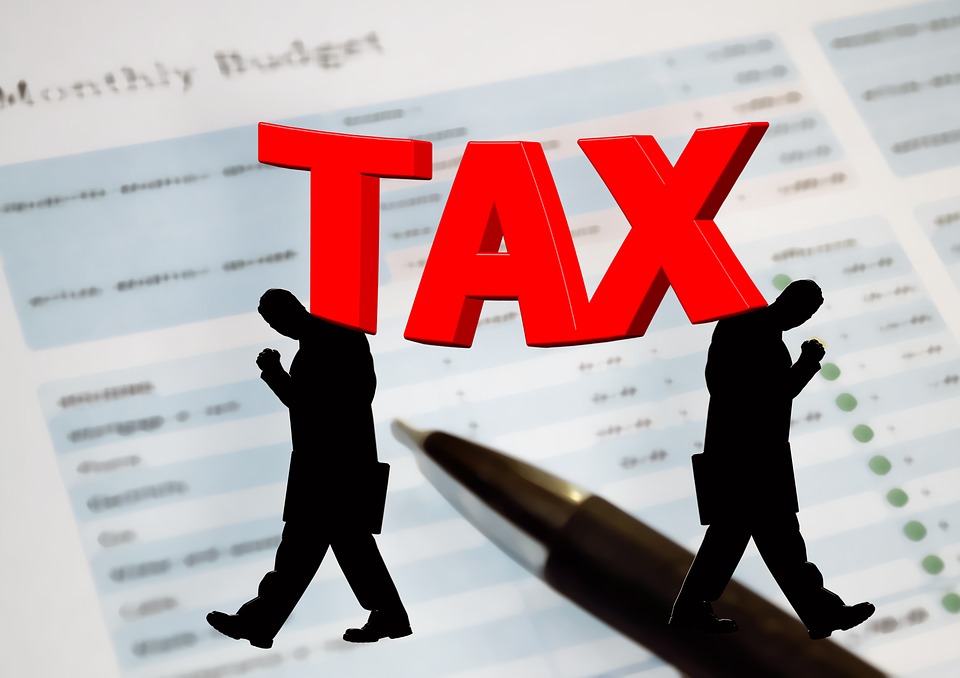latest
Inflation casts shadow over Massachusetts tax relief plans

By Colin A. Young
STATE HOUSE, JULY 27, 2022…..Republican lawmakers and a right-leaning advocacy group made their latest pitch Wednesday for Beacon Hill to provide greater tax relief for Bay Staters, pointing to a new study that showed inflation in the energy and transportation sectors has hit Massachusetts harder than the national average.
Inflation has eaten away at consumers’ purchasing power, rising to a new four-decade peak in June as nationwide prices came in 9.1 percent higher than 12 months before thanks to surging gas, food and rent prices. Recent polling has confirmed that the issue is top of mind for Massachusetts residents and Beacon Hill Democrats are working to finalize a plan that would send $250 to each taxpayer who earned between $38,000 and $100,000 last year (or $500 for joint filers) as a way to alleviate some of the pressure of higher costs.
But Republicans said Wednesday that the Democrats’ plan, which is tucked into a massive economic development bill expected to be hammered into its final form by Sunday, simply won’t be enough.
“If you’re an average family in Massachusetts, the cost of your weekly groceries are probably between $300 and $500. So realistically, this is going to get people maybe a week’s worth of food for a mom and a dad and a couple of kids,” Rep. Nick Boldyga, a Southwick Republican, said Wednesday morning. He added, “You have families with crippling charge card balances, the interest rates are growing up, they’re drowning in debt, they’re never going to be able to dig out of this and the fact is that $250 and $500 is nowhere near enough of a tax reform to help working-class people and families dig out this mess that they’re in right now.”
Boldyga spoke as part of a Fiscal Alliance Foundation event to release the findings of a Beacon Hill Institute study that the foundation commissioned.
That study found that Massachusetts electricity prices have increased by more than 14.5 percent compared to the increase in national electricity prices of just over 11.1 percent — a sharp rise that the organization noted coincides with Beacon Hill’s push to shift vehicles and home heating from running on fossil fuels to being powered by electricity.
The BHI study also looked at the increases in prices in the Greater Boston region and compared them to the national averages for those same product categories. Gasoline is up 54 percent here compared to up 48 percent nationally, the cost of used cars and trucks is up by 37 percent versus the national average of 35.3 percent, the price of natural gas has climbed by 27 percent compared to the national average of 21.6 percent, and transportation costs are up 21 percent versus the national rate of 7.7 percent.
“With only days to go in the legislative session, it’s so important for our legislative leadership and the Governor to keep their focus on helping the middle class by reducing the tax burden through broad middle class tax relief. Right now, we could be doing more for them, but there is resistance by leadership,” Rep. David DeCoste, a Norwell Republican, said. “For my constituents who live outside of the Boston area, the cost of everything is only going up and these middleclass pockets of Massachusetts need our help.”
Boldyga pitched two relief ideas Wednesday that he said the House rejected when it debated its fiscal year 2023 budget: a prescription drug rebate program for senior citizens living at the federal poverty line and a fuel tax rebate program for farmers who produce food in Massachusetts. Rep. Kelly Pease proposed suspending the state’s gas and diesel taxes — an idea Beacon Hill Democrats have repeatedly rejected — to provide relief for drivers and to attempt to bring down the cost of goods that are shipped by truck.
All across Massachusetts, residents have their minds on their pocketbooks as they watch inflation reduce how far their savings could go and erode their buying power.
A Suffolk University and Boston Globe survey of 600 Massachusetts residents from July 20 to 23 found that eight out of 10 residents have faced some amount of financial hardship thanks to the last year of rising prices. Almost 26 percent of respondents said that the biggest source of stress in their lives right now is either “money/finances” (17 percent) or “inflation/cost of living/gas prices” (8.83 percent).
When asked which recent development has affected them the most emotionally, 33.33 percent of survey respondents pointed to “inflation and the possibility of a recession,” trailing only the 41.67 percent who cited “Supreme Court decisions on abortion rights, gun control, and the environment,” according to the poll.
The same poll found that 45.83 percent of respondents believe the economy is in a recession and 14.67 percent think the nation is in a depression.
While neither has been declared, the U.S. Commerce Department’s Bureau of Economic Analysis is scheduled to release its advance estimate of 2022 second quarter gross domestic product on Thursday. If the BEA recorded an economic contraction in April, May and June, it would be the second consecutive quarter with negative growth — generally viewed as the first confirmation that the national economy has entered a recession.
The official designation of a recession, however, is up to a committee of experts at the National Bureau of Economic Research, which is based in Cambridge.





LYNN
July 27, 2022 at 11:00 pm
We will never see a dime. NM democrats are as crooked as a winding brook but we now have an MBTA that needs an overhaul. All I see coming is paying more after Sunday.